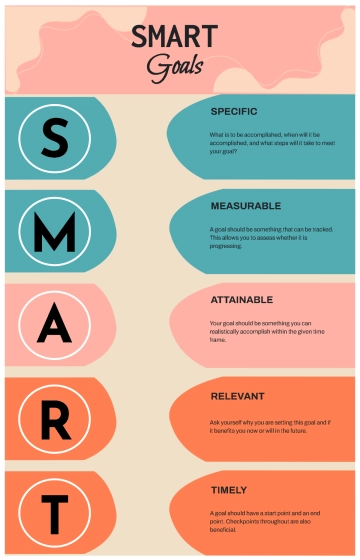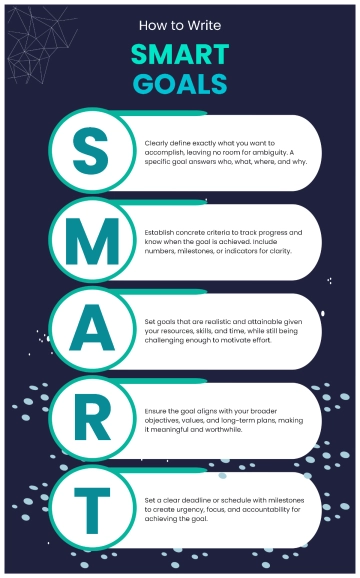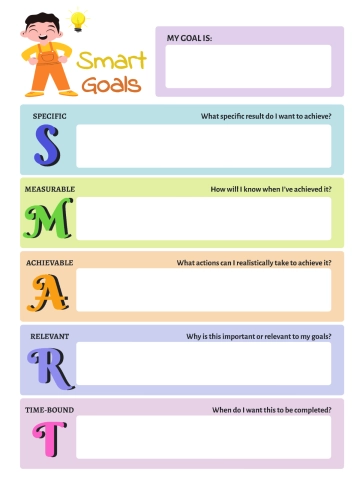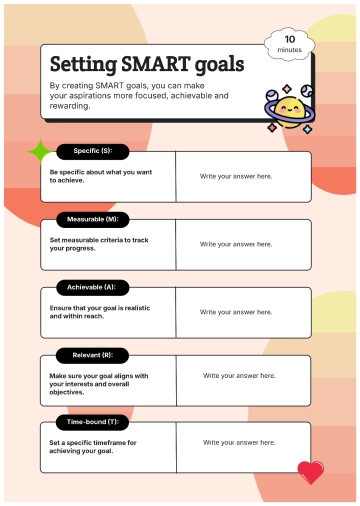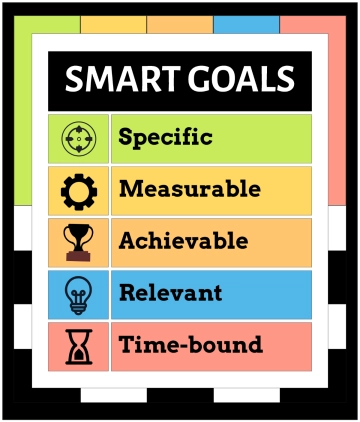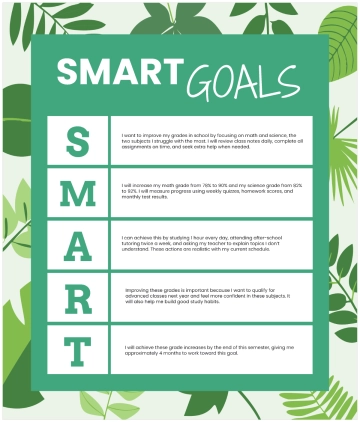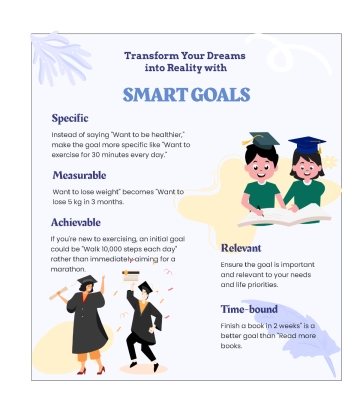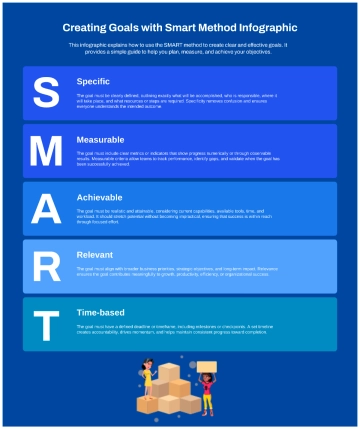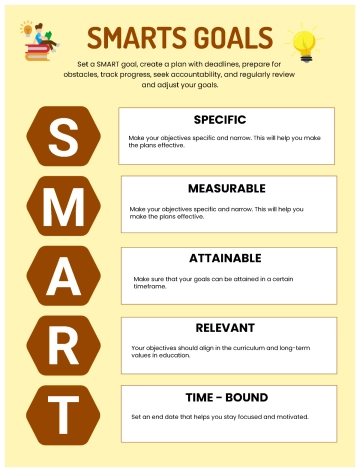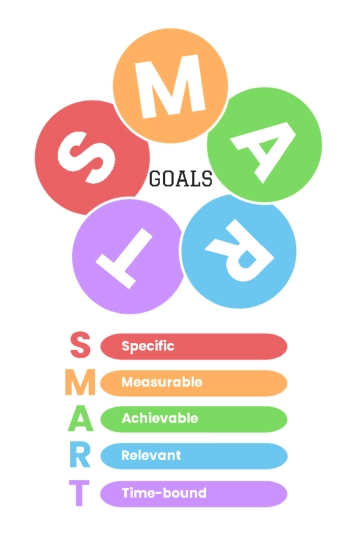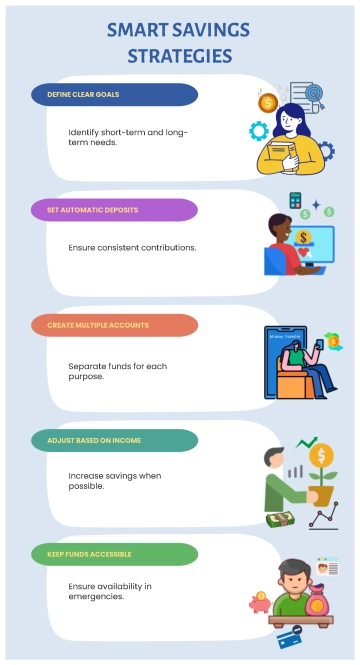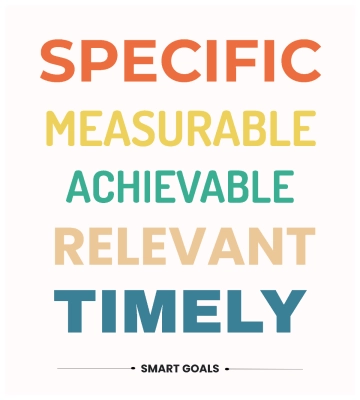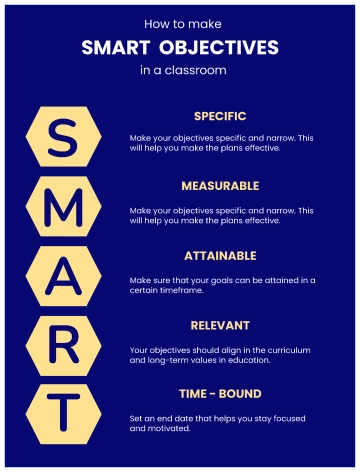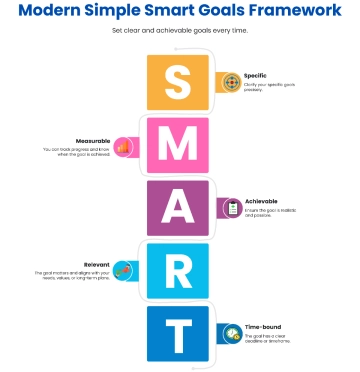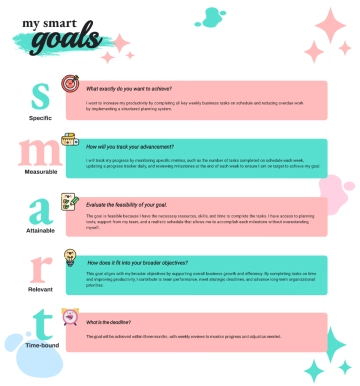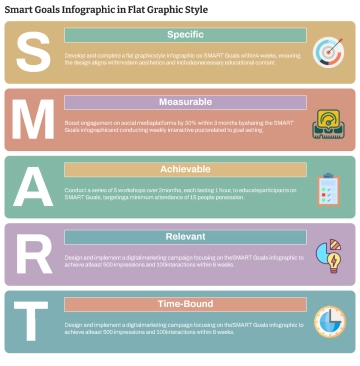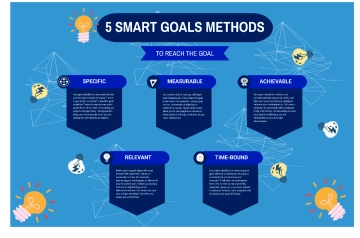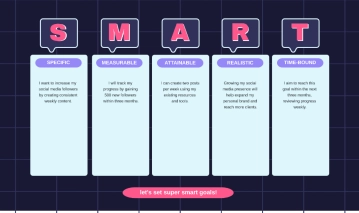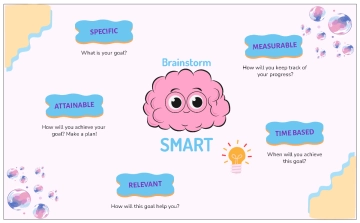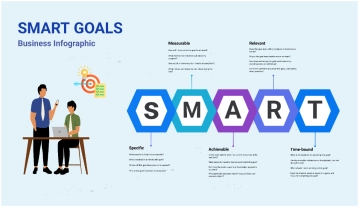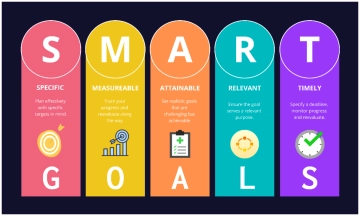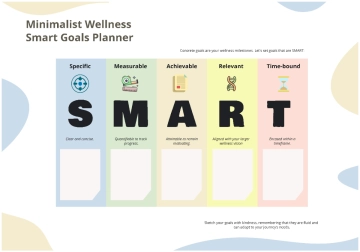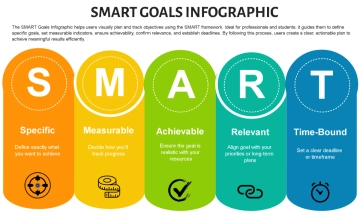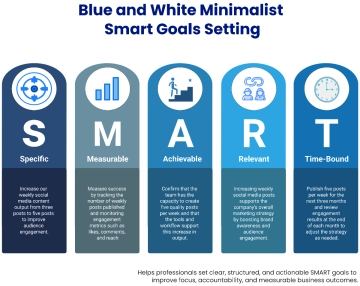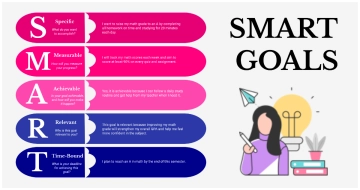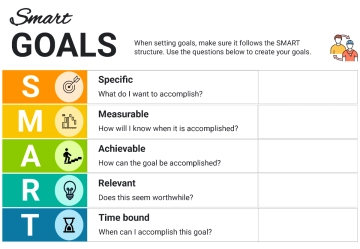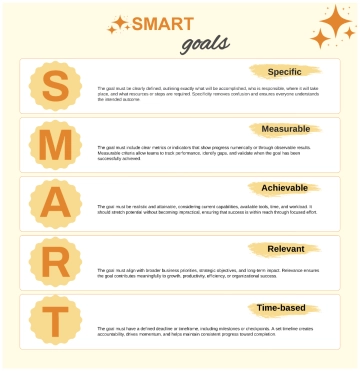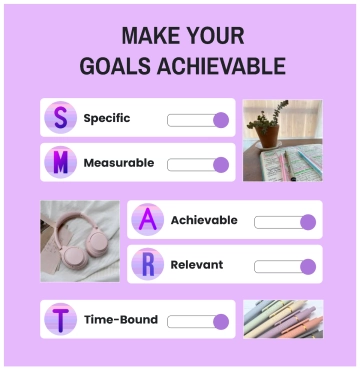Free SMART Goals for Education
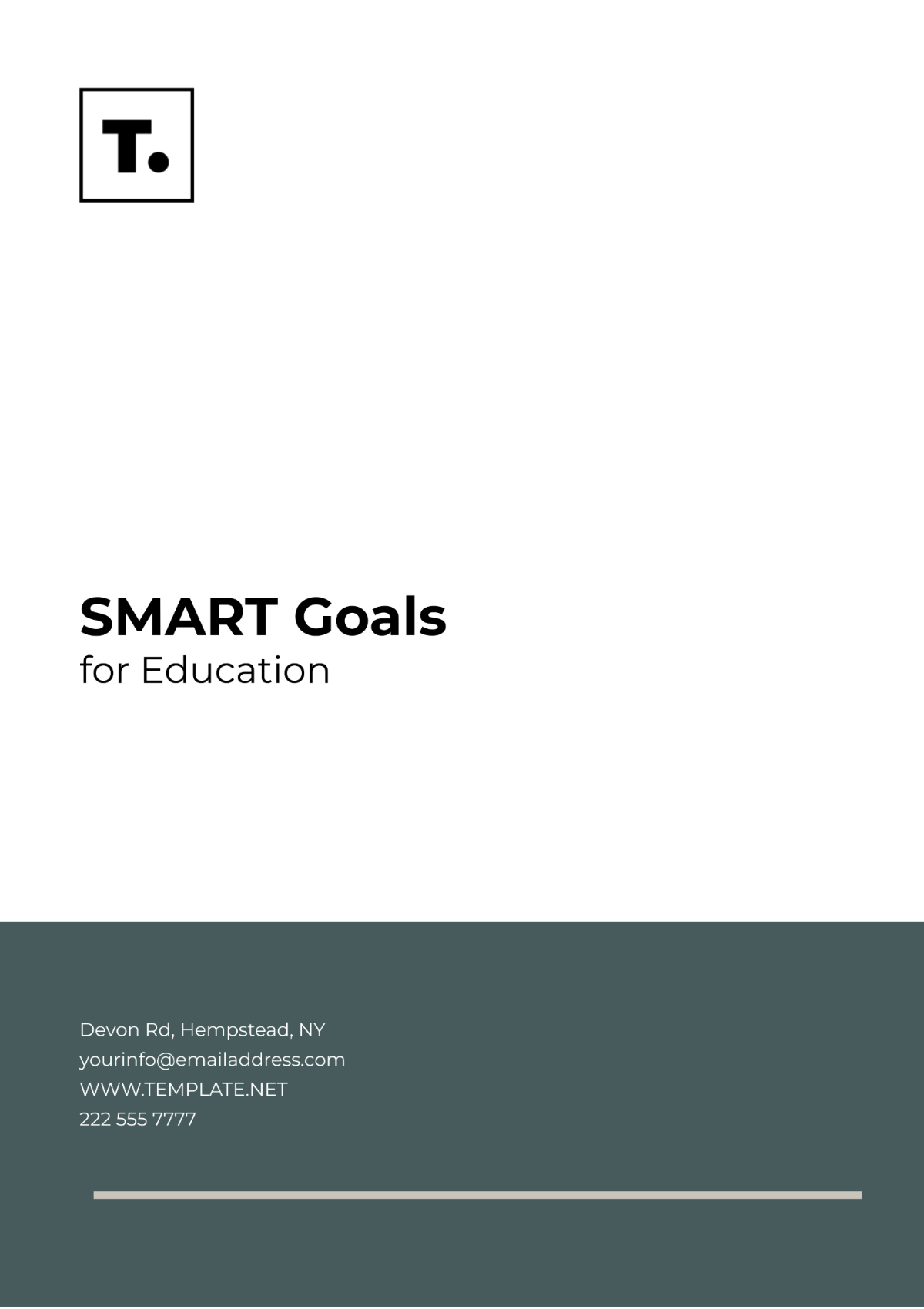
Prepared by: [YOUR NAME]
The SMART Goals for Education outline a targeted approach to enhancing student reading levels through a structured 30-minute daily reading program. By implementing this program, we aim to achieve measurable improvements in reading comprehension and align with state education standards within the academic year.
SMART Criteria
SMART | Details |
|---|---|
Specific | Improve student reading levels by implementing a daily 30-minute reading program tailored to each student’s current reading proficiency. |
Measurable | Assess student progress through monthly reading comprehension tests and track a minimum improvement of 5% in test scores over a six-month period. |
Achievable | Provide ongoing professional development for teachers to equip them with effective strategies for reading instruction and intervention. |
Relevant | Align the reading program with state education standards and integrate it with the existing curriculum to ensure consistency and coherence. |
Time-bound | Set a goal to achieve the desired improvement in student reading levels by the end of the academic year, with quarterly benchmarks to monitor progress. |
Action Plan
Program Development: Design a comprehensive reading program with a curriculum that addresses varying reading levels. Target completion by [SPECIFIC DATE].
Professional Development: Schedule and conduct training sessions for teachers on reading instruction strategies. Ensure all teachers are trained by [SPECIFIC DATE].
Implementation: Launch the reading program in all participating classrooms. Begin implementation by [SPECIFIC DATE].
Assessment and Feedback: Conduct monthly reading comprehension tests and review results to measure progress. Adjust the program based on feedback and performance data. Initial assessment to start by [SPECIFIC DATE].
Quarterly Reviews: Hold quarterly meetings to review progress against benchmarks and make necessary adjustments. Schedule the first review meeting for [SPECIFIC DATE].
Accountability
Program Coordinator: [NAME] – Responsible for overseeing the development and implementation of the reading program.
Teachers: [NAME/S] – Responsible for administering the reading program and conducting assessments.
Professional Development Facilitator: [NAME] – Responsible for organizing and delivering teacher training sessions.
Assessment Specialist: [NAME] – Responsible for creating and grading comprehension tests and compiling progress reports.
Notes
Ensure that all materials and resources for the reading program are accessible to both teachers and students.
Regularly communicate with stakeholders (students, parents, and school administrators) to keep them informed of progress and any necessary changes.
Consider incorporating technology and digital resources to enhance the reading program.
Resources Needed
Reading Materials: Age-appropriate books and reading resources tailored to various proficiency levels.
Training Materials: Professional development resources and tools for teachers.
Assessment Tools: Test materials and software for tracking student progress.
Evaluation Criteria
Improvement in reading comprehension scores by at least 5% over six months.
Teacher feedback on the effectiveness of the professional development and reading program.
Student engagement and participation in the reading program.
Risk Management
Potential Challenges: Resistance to program implementation, lack of resources, varying student proficiency levels.
Mitigation Strategies: Develop a support plan for teachers, secure additional resources if needed, and tailor the program to address diverse reading needs.
Follow-Up
Schedule follow-up meetings with stakeholders to discuss program effectiveness and areas for improvement.
Plan for a comprehensive review at the end of the academic year to assess overall success and make recommendations for future programs.
- 100% Customizable, free editor
- Access 1 Million+ Templates, photo’s & graphics
- Download or share as a template
- Click and replace photos, graphics, text, backgrounds
- Resize, crop, AI write & more
- Access advanced editor
Empower your educational strategies with the SMART Goals for Education Template from Template.net. This customizable template is designed to help educators and administrators set clear, measurable objectives that align with academic standards. Fully editable in our Ai Editor Tool, it ensures that your goals are not only attainable but also time-bound
